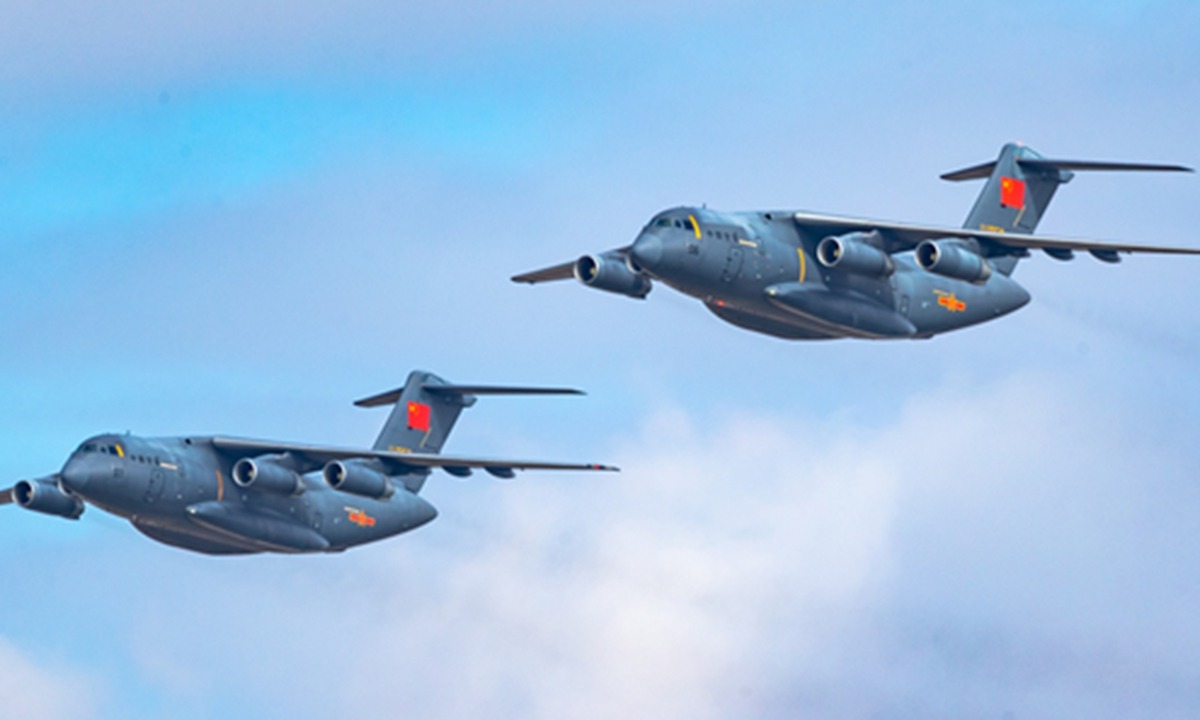Chinese and Belarusian troops have conducted a joint exercise simulating the capture of an airport near the border with Poland and Ukraine as a part of their bilateral exercise, dubbed “Eagle Assault.”
Held near the city of Brest, which is close to Poland and just 28 kilometers (17 miles) from Ukraine, the joint “anti-terrorist training” exercise marked the first time Chinese troops participated in training on Belarusian soil.
According to the Belarusian defense ministry, the exercise began on July 15 and concluded on July 19. On July 18, the Chinese defense ministry provided a detailed account of the exercise, praising the troops for their excellent technical and tactical skills, rigorous training standards, and robust fighting spirit.
The Chinese commander, Wang Bo, emphasized the successful practice of various military tactics, noting that the exercise included encircling, controlling, and pursuing targets, as well as refining reconnaissance and blockade tactics.
Forget J-20, China’s H-20 Stealth Bomber Threatens ‘Easy Penetration’ Of LAC; How Can IAF Respond?
On July 17, the joint air-ground combat exercise simulated an operation to seize control of an airport from terrorists using drones, paratroopers, and ground forces.
The Chinese defense ministry’s report noted that the exercise proceeded “smoothly” due to the “seamless coordination,” “solid training,” and “high level of trust” between the Chinese and Belarusian forces.
The joint drill was announced shortly after Belarus officially became the Shanghai Cooperation Organization (SCO) ‘s 10th member state.
This month has seen additional Chinese military engagements in Belarus, including the participation of the PLA Guard of Honor in a military parade in Minsk on July 3, commemorating the 80th anniversary of Belarus’s liberation.
Belarus has been a staunch supporter of Moscow’s war efforts since the full-scale invasion of Ukraine began in February 2022. The country is even hosting Russian tactical nuclear weapons on its territory, underscoring its close alignment with Russia.
China, while calling for direct peace talks between Russia and Ukraine in recent weeks, has not condemned the invasion and has instead deepened its ties with Moscow since the war’s onset.
The NATO Washington Summit Declaration, issued after a recent meeting in the US capital, expressed “profound concern” over China’s growing partnership with Russia.

China-Belarus Drills Draw Inspiration From the Ukraine War?
The joint exercise simulating the capture of an airport appears to draw inspiration from real-world conflicts, notably the ongoing war in Ukraine.
During the initial phase of the Ukraine conflict, Russian forces successfully seized Gostomel Airport, also known as Antonov Airport, located near Hostomel, a town about 12 miles northwest of Kyiv.
This military airfield, which boasted an 11,483-foot (3,500-meter) runway capable of accommodating the largest transport aircraft, was a critical asset for the Russian military. It included several multi-story buildings, some up to six stories high, and two large hangars.
The battle for Gostomel Airport began on the morning of February 24, 2022, and concluded within 36 hours, with Russian forces securing the airport. The Russian occupation lasted until April 2, when they withdrew and relinquished control to the Ukrainians.
Despite holding the airport for over a month, the Russian forces faced significant challenges, including numerous losses and tactical errors that led to multiple changes in control of nearby areas.

The withdrawal from Gostomel was part of a broader retreat from the Kyiv region, which included abandoning plans for a ground assault on the capital.
Western analysts later suggested that the Russian push toward Kyiv was a strategic diversion designed to draw Ukrainian forces to the north, thereby allowing Russia to consolidate its gains and shape the battlefield in the eastern and southern regions of Ukraine.
The assault on Gostomel Airport, which involved nearly 300 helicopters, including Ka-52 Alligators, and troops from various Air Assault Brigades, was largely deemed successful.
‘Raptor Salad’ For Lunch! US F-22 Raptor Outgunned, Outmaneuvered By German Eurofighter Typhoon?
CNN described the capture of the airport as “the first major victory” for the Russians in their invasion. The Washington Post noted that while the Russians established a bridgehead, they ultimately failed to secure the airport sufficiently to call in aerial reinforcements or fend off a Ukrainian counterattack.
Nonetheless, the capture of Gostomel Airport was a strategic priority for Russia, intended to facilitate rapid troop deployment, seize control of Kyiv, and potentially destabilize or overthrow the Ukrainian government.
In a similar vein, should China initiate an invasion of Taiwan, it would likely target key airports on the island to secure a strategic foothold and expedite the deployment of its forces.
Taiwan is well aware of such strategies. Last year, as part of its extensive annual Han Kuang exercises, the Taiwanese military conducted drills to defend its largest airport against a simulated attack by the Chinese People’s Liberation Army (PLA).

